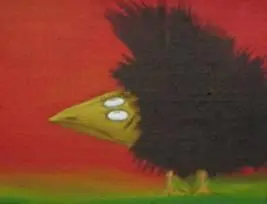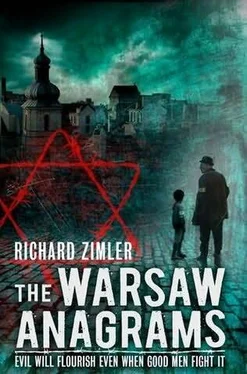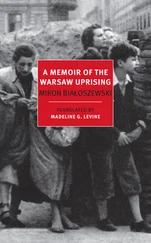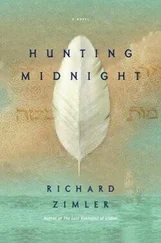Ech – A groan or exclamation of displeasure or disparagement.
‘El Male Rachamim’ – Hebrew prayer for the repose of the soul of the departed.
Festina lente – Latin for ‘hurry slowly’.
Flor – German word for the gauze or crepe used in women’s clothing and in veils.
Gehenna – Hebrew word for hell, used commonly in Jewish folktales and kabbalistic literature.

– Polish for stuffed cabbage leaves; part of the country’s traditional cuisine.

Golem – Hebrew: In Jewish folklore and mystical traditions, a golem is an animated being created entirely from inanimate matter. The most famous story of such a creature involves Rabbi Judah Loew of Prague, who was said to have created a golem to defend the Jewish ghetto from anti-Semitic attacks.
Gottenyu – My God!
Goy – Non-Jewish person, gentile.
Goyim – The plural of Goy.
Hak mir nisht ken tshaynik! – Literally, ‘Don’t knock me a teakettle,’ but with the meaning, ‘Stop rattling on and on with that endless chatter!’
Hänschen klein – Little Hans in German.
Hatikvah – An anthem written by Naphtali Herz Imber, a Galician Jew, who moved to Palestine in the 1880s. The Hebrew title means ‘The Hope’.
Hilfe – ‘Help’ in German.
Ibbur – Hebrew word for ghost, spirit or spectre.
Kaddish – The Jewish prayer of mourning.
Katshkele – Little duck.
Levone – Moon.
Linka – ‘String’ in Polish.
Macher – Important person or big shot.
Mazel tov – Of Hebrew origin, an expression that means ‘I’m thrilled for your good fortune’, ‘Good for you’ or simply ‘Congratulations!’
Meshugene – Crazy.
Meiskeit – Very ugly person, sometimes used with affection, as when applied to a child so ugly only its mother could love it.
Mitzvah – Hebrew word for commandment. It generally refers any one to the 613 duties of each and every Jew, as enumerated in the Torah. By extension, any good deed.
Noc – ‘Night’ in Polish.
Noc die Zweite – Night the Second (as the name of a dog in the text).
Payot – The sidelocks of hair (often ringlets by the temple) worn by Hasidic Jews and others.
Petzl – pee-pee, as in a young boy’s penis. From putz , a vulgar term for penis.
Piskorz – ‘Small fish’ or ‘minnow’ in Polish.
Reb Yid – A traditional and polite form of address.
Schmaltz – Chicken fat used in cooking.
Schul – School and, by extension, synagogue services.
Sheygets – An elongated pastry stuffed with poppy seeds and glazed with honey. From its resemblance to the uncircumcised member of a sheygets – a gentile boy.
Sheyn Vi Di Levone – ‘Beautiful is the Moon’ (the name of a Yiddish lullaby).
Shiva – The week of mourning for the dead prescribed by Jewish law.
Shmekele – Little penis.
Shtetl – A small Jewish town or village.
Sitra Ahra – The Other Side (from the Aramaic term used in kabbalistic literature to designate the demonic sphere or domain of evil).
Tsibele – Onion.
Tzitzit – Hebrew word for the tassels or fringes at the corners of a prayer shawl. They are to remind us of the commandments of Deuteronomy 22:12 and Numbers 15:37-41.
Ver mir di kapore – Literally, ‘become my sacrificial hen’ and by extension, ‘drop dead!’ An expression taken from the religious practice in which a sacrificial chicken ( kapore-hun ) is waved around the head of a Jew on the eve of Yom Kippur (the Day of Atonement) and then slaughtered as a ‘scapegoat’ for the sins of the chicken’s owner.
Źydóweczka – Little Jew-girl in Polish.

Richard Zimlerwas born in New York. After gaining degrees from Duke University and Stanford University, he worked as a journalist in San Francisco for nearly a decade. He is the author of seven other novels, including The Search for Sana, The Last Kabbalist of Lisbon and The Seventh Gate . He has won many prizes for his writing and has lectured on Sephardic Jewish culture all over the world. He lives in Porto, Portugal.
***

















